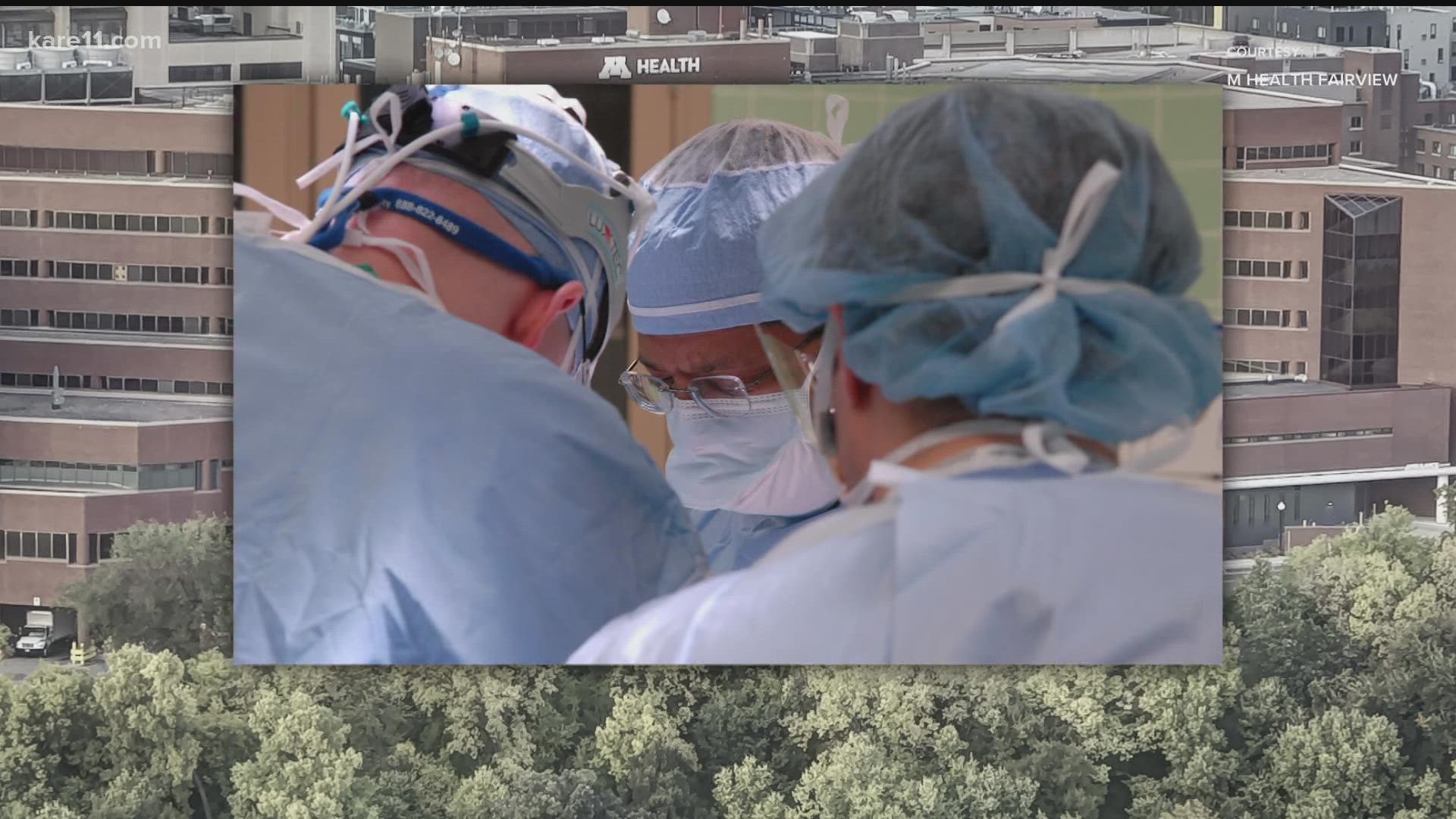MINNEAPOLIS — It's no coincidence that Valentine's Day falls during American Heart Month, but for heart transplant teams at M Health Fairview, one day in February won't top 36 hours in November.
"It so happened that a flood of donor hearts came in and we had three hearts going in, in the space of 30 to 36 hours," said Dr. Ranjit John, surgical director of the Heart Transplant Program for M Health Fairview and the University of Minnesota Medical School.
The first of the three calls about an available donor heart came in on Nov. 4, and an on-call transplant team began prepping the operating room at M Health Fairview University of Minnesota Medical Center in Minneapolis.
"We want to implant that heart within a period of four hours from the time it comes out," Dr. John said. "It's like an orchestra. When that heart comes back, the team here is ready to implant it."
That first heart was destined for Marti Swearingen, of Sioux Falls, South Dakota, who was transferred to Minneapolis in late October after a debilitating headache led to a trip to the ER — and a disturbing discovery.
"They said I was in heart failure," Swearingen said. "There was nothing they could do."
The only option she and her family had was to wait for a donor heart.
"It was, I believe, eight days later when they came in and told me that they got a heart," Swearingen said. "I bawled like a baby. I still get emotional over it. It was a miracle."
But she had no idea that it was just the first of several miracles to come calling in the next day.
"Our program typically does about 30 heart transplants a year," Dr. John said. "So clearly, three in 36 hours is out of the norm."
During that span, Dr. Ryan Knoper spent nearly 14 hours in two different surgeries, including Marti's. Dr. John handled the third transplant, but says it took two complete teams — along with the work of many others — to pull it all off.
Dr. John: "There were nurses that were not on call who came to help. The operating room leadership made available two rooms to go at the same time. The ICUs made the extra effort to make the beds to receive these patients. Each of these small things are just vitally important; without one of them, this process just ceases."
Kent Erdahl: "Was there ever a point in which you thought that maybe you wouldn't be able to pull it off?"
Dr. John: "It did cross the entire team's mind, but most health care systems, including ours, have put this as a priority that we are going to do everything we can, not to say no to (transplants). We don't want to say no to one of those hearts being offered because that may not happen again for days, weeks or even months."
It's an effort Swearingen still struggles to comprehend.
"I couldn't show enough gratitude for all of it," she said. "I can say that the doctors are amazing and the nursing staff is amazing too. They keep your spirits uplifted and don't let you quit."
According to M Health Fairview, all three of the transplant recipients were back home for the holidays and continue to do well. Swearingen says she hopes to return to work in Sioux Falls soon.
Watch more local news:
Watch the latest local news from the Twin Cities in our YouTube playlist:

